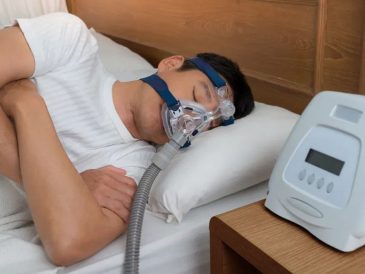Alcohol addiction is a complex condition that affects millions of people worldwide, impacting not only physical health but also relationships, mental well-being, and daily functioning. Seeking professional support through alcohol rehab is often the first crucial step towards recovery. Residential alcohol rehabilitation programs provide a structured and immersive environment designed to help individuals break free from addiction and develop lasting sobriety. These programs combine medical supervision, therapeutic interventions, and peer support, offering a comprehensive path to recovery for those struggling with alcohol dependence.
1. 24/7 Medical Supervision and Detoxification
Residential rehab facilities provide continuous medical oversight, ensuring individuals undergo safe and effective detoxification. Alcohol withdrawal can cause serious and even life-threatening symptoms such as seizures, severe dehydration, and cardiovascular issues. Having healthcare professionals available around the clock ensures that any complications are promptly addressed, reducing risks and creating a safer detox process. This medical supervision is a critical component of residential alcohol rehab, especially for those with severe or long-term alcohol dependence.
2. Structured Environment Free from Distractions
One of the primary advantages of residential rehab is its highly structured environment. Patients are removed from the triggers, stressors, and temptations of their usual surroundings, allowing them to focus entirely on recovery. The daily schedule, routines, and rules within a residential program promote discipline, accountability, and a sense of stability. This controlled setting provides a safe space to heal, learn new coping strategies, and rebuild life skills without the distractions that can hinder progress in an outpatient setting.
3. Comprehensive Therapeutic Programs
Residential alcohol rehab centres offer a wide range of therapeutic interventions tailored to each individual’s needs. Some common therapies include:
- Individual Therapy: Helps patients explore the root causes of addiction, address underlying mental health issues, and develop healthy coping mechanisms.
- Group Therapy: Offers a supportive community where participants can share experiences, challenges, and successes, fostering empathy and encouragement.
- Family Therapy: Engages family members in the healing process, addressing relational issues and rebuilding trust that may have been damaged by addiction.
- Holistic Therapies: Activities such as yoga, meditation, art therapy, and mindfulness practices support emotional, physical, and spiritual well-being.
By addressing both psychological and physical aspects of addiction, these programs treat the whole person rather than just the symptoms of alcohol dependence.
4. Peer Support and Community
Being part of a supportive community is a cornerstone of residential rehab. Individuals living and recovering together provide motivation, understanding, and accountability. Sharing personal experiences with peers who face similar challenges creates a sense of belonging and reduces feelings of isolation. This peer network often becomes a valuable long-term support system that continues even after the residential program concludes.
5. Aftercare Planning and Relapse Prevention
Successful recovery extends beyond the residential stay. Alcohol rehab programs focus heavily on aftercare planning, equipping individuals with tools to prevent relapse and maintain sobriety. This may include:
- Relapse Prevention Strategies: Learning to manage cravings, identify triggers, and implement coping mechanisms in real-life scenarios.
- Continued Therapy: Access to outpatient sessions or support groups ensures ongoing guidance and encouragement.
- Life Skills Training: Teaching practical skills to rebuild personal, social, and professional life after rehab.
A strong aftercare plan bridges the transition back into everyday life, helping individuals sustain long-term recovery.
6. Higher Success Rates Compared to Outpatient Programs
Research consistently shows that residential alcohol rehab programs lead to higher success rates for maintaining sobriety than outpatient options. The intensive, immersive nature of residential care provides continuous support, accountability, and structured treatment, all of which are crucial for overcoming severe addiction. Individuals in residential programs often leave with stronger coping strategies, healthier habits, and improved resilience against relapse.
7. Safe and Supportive Environment
Residential rehab offers a sanctuary for individuals seeking recovery. For those who lack a stable or supportive home environment or who face daily exposure to alcohol and other substances, this safe space is essential. Being removed from negative influences allows patients to focus entirely on their physical and emotional healing, which is a cornerstone of successful recovery.
Conclusion
Residential alcohol rehabilitation programs provide a comprehensive, structured, and supportive approach to overcoming alcohol addiction. From 24/7 medical supervision and structured routines to therapeutic interventions, peer support, aftercare planning, and safer recovery environments, the benefits are clear. Choosing the right alcohol rehab residential program is a pivotal step toward achieving lasting sobriety, restoring overall well-being, and rebuilding a healthier, more fulfilling life.





